Review & Guide of Ambient Music
Have you ever been lost in the calming sounds of nature, the gentle hum of a cafe, or the rhythmic pattern of rain on your window? These are all examples of soundscapes that can evoke emotions and create a specific atmosphere. Ambient music, a unique genre that emphasizes atmosphere over traditional musical structure, aims to achieve just that.
In this article, we will dive into the world of ambient music, exploring its history, characteristics, and how to easily access it.
Part 1: What is Ambient Music?
Emerging in the 1970s, ambient music distinguishes itself from traditional music by prioritizing the creation of specific atmospheres and moods over catchy melodies, prominent rhythms, and defined song structures. Coined by British composer Brian Eno, ambient music features gentle, ever-changing soundscapes crafted from a unique blend of electronic instruments, synthesizers, and natural sounds like rain, wind, or ocean waves.
While the term itself gained popularity in the 70s, the roots of ambient music extend much further back. Early influences include Erik Satie's "Gymnopédies" (1888), known for their repetitive and dreamlike quality. These piano pieces are considered precursors to ambient music due to their focus on atmosphere over traditional structure.
Part 2: 10 Most Popular Ambient Music on YouTube
Now that we have established an understanding of ambient music's origins and defining features, let's explore some of the most acclaimed ambient music compositions on YouTube.
- Brian Eno - "Stars"
- Harold Budd - "The Plateaux of Mirror"
- Steve Roach - "Quiet Music"
- Loscil - "Swimming"
- Stars of the Lid - "And They Explode After Contact"
- Boards of Canada - "Music Has the Right to Children"
- Aphex Twin - "Selected Ambient Works 85-92"
- Tim Hecker - "Ravedeath, 1977"
- Laraaji - "Ambient 3: Day of Radiance"
- Biosphere - "Substrata"
Brian Eno, a trailblazer in ambient music, created "Stars," which captures the essence of ambient music beautifully. It mixes soft piano tunes with light, airy synthesizer sounds, giving a feeling of floating and calm.
Harold Budd, famous for his simple music and working with Eno, presents a masterpiece called "The Plateaux of Mirror" that's all about calmness. It features gentle piano melodies and long, held chords that slowly bring you into a thoughtful, peaceful state, ideal for meditation or unwinding.
Electronic music pioneer Steve Roach takes a different approach to ambient with "Quiet Music." Layers of synthesizers create a mesmerizing tapestry of droning textures and evolving soundscapes. The piece is both calming and subtly stimulating, perfect for focusing on creative tasks or simply getting lost in the sonic world.
Loscil's "Swimming" captures the essence of its title with a beautifully crafted soundscape. Gentle electronic textures evoke the feeling of floating weightlessly underwater, surrounded by shimmering light and gentle currents.
Stars of the Lid's "And They Explode After Contact" takes a more atmospheric and cinematic approach to ambient music. Layers of distorted guitars, field recordings, and treated sounds create a sense of mystery and intrigue.
Hailing from Scotland, Boards of Canada's "Music Has the Right to Children" is a genre-bending masterpiece. The track seamlessly blends playful melodies, distorted samples, and melancholic atmospheres, creating a whimsical and nostalgic soundscape.
Aphex Twin, known for his experimental electronic music, explores the darker side of ambient with "Selected Ambient Works 85-92." The album features a diverse range of tracks, from unsettling drones and distorted textures to moments of unexpected beauty and tranquility.
Canadian artist Tim Hecker's "Ravedeath, 1977" pushes the boundaries of ambient music. Layers of distorted guitars, manipulated vocals, and field recordings create a dense and unsettling soundscape. While not traditionally relaxing, the album's raw emotion and sonic power can be incredibly captivating and thought-provoking.
American musician Laraaji's "Ambient 3: Day of Radiance" offers a unique and uplifting experience. The track features gentle zither melodies, playful flute improvisations, and natural sounds like birdsong, creating a sense of joy and serenity.
Scottish ambient artist Biosphere takes listeners on a journey through diverse sonic landscapes on "Substrata." The album seamlessly blends elements of ambient, techno, and environmental music, creating a sense of space, exploration, and wonder.
Part 3: How to Get the Ambient Music Genre with Simple Clicks?
While exploring the ocean of ambient music on YouTube offers endless possibilities, sometimes you might want a quick and convenient way to generate your own music. Here's where HitPaw AI Music Generator steps in. HitPaw AI Music Generator is an online tool that uses artificial intelligence to provide an easy and accessible way to generate music in various styles, including ambient.
Supported OS:Windows and macOS
Pros
- Generate music in diverse genres, from ambient to pop.
- Create music with just a few clicks, no expertise needed.
- Generate music instantly without lengthy downloads or installations.
Cons
- As a relatively new software, HitPaw AI Music Generator is still evolving.
Steps on How to Generate Christian Music Genre
In order to effortlessly generate free and your own ambient music, you will need to follow three simple steps, which are given as follows:
Step 1:Choose 'Text to Melodies'
Start by navigating to the 'AI Music' section, which you'll find on the left side of the screen. Once you're there, you're going to choose the 'Transform text to melodies' option.
Step 2:Enter the Prompt and Select the Music Theme
In this step, you will be asked to input the lyrics you've written or have in mind into a specific box designed for this purpose, often referred to as the prompt box. After typing your lyrics, you'll choose a music theme that best suits the mood or genre you're envisioning for your song, which is ambient in our case.
Step 3:Create and Get Your Music
After you've selected ambient music as your preferred genre, you'll proceed by clicking the 'Generate' button. This action triggers the AI to start working on your lyrics, transforming them into a unique piece of music in just a few seconds.
Once the generation process is complete, you can preview your newly created music, which will be displayed on the right side of the screen. If you're happy with the result, simply sign up as a member and download the music.
Watch the following video to learn more details:
Part 5: FAQs of Ambient Music
Q1. What does ambient music sound like?
A1. Ambient music can vary in its sound, but it generally features gentle, evolving soundscapes with minimal melodies and rhythms. It may incorporate electronic sounds, natural sounds, or a combination of both.
Q2. Is ambient music relaxing?
A2. While not always the case, ambient music is often designed to be calming and relaxing. Its slow tempos, gentle textures, and lack of prominent rhythms can create a sense of peace and tranquility. However, some forms of ambient music can be more experimental or even unsettling, so it's important to explore different artists and styles to find what works best for your needs.
Q3. Who invented ambient music?
A3. The term "ambient music" was popularized by British composer Brian Eno in the 1970s. However, the concept of creating music that focuses on atmosphere and mood, rather than traditional song structures, has roots that extend back further in musical history, with influences from composers like Erik Satie and movements like Musique Concrète.
Part 6: Final Word
Ambient music's calming soundscapes offer a unique escape, fostering relaxation, creativity, or focus. Whether you're seeking a study soundtrack or a sonic journey, there's something for everyone. In this article, we explored the genre, discussed its key features, popular tracks, and introduced a tool for generating your own ambient music: the HitPaw AI Music Generator.
Ready to explore the world of ambient music and create your own soundscapes? Head over to HitPaw and unleash your creativity!






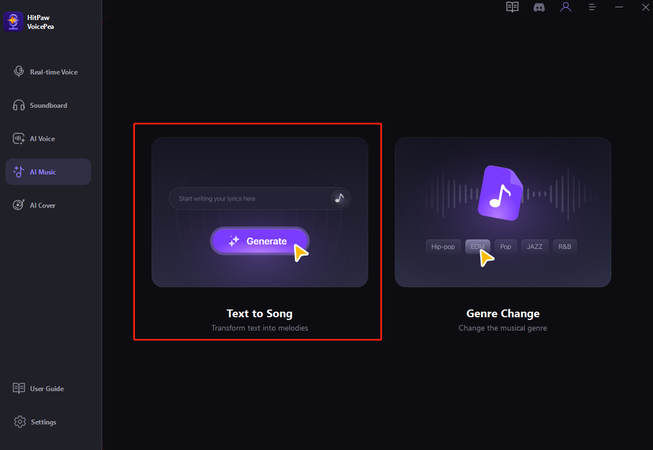
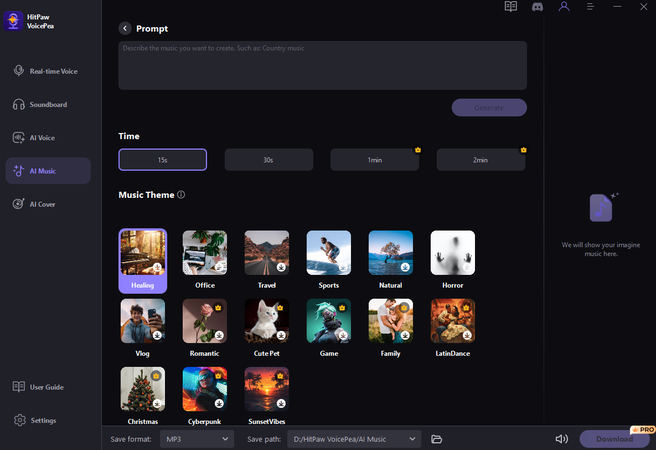
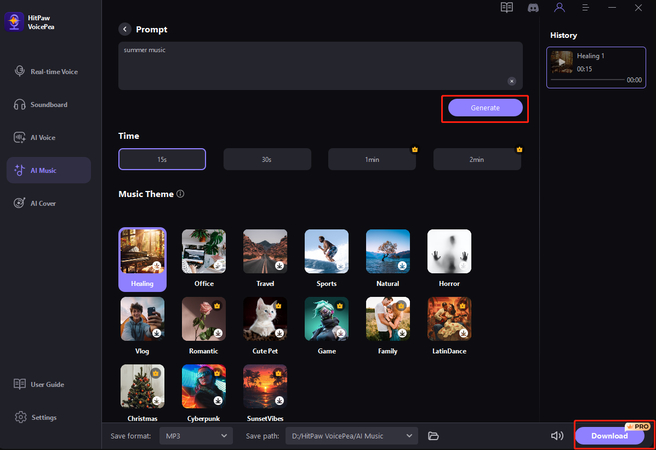
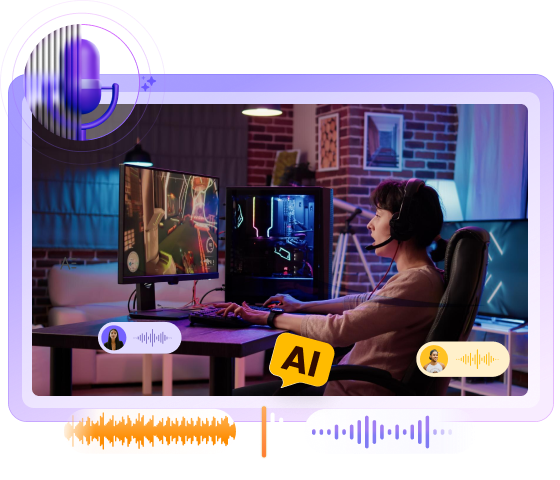
 HitPaw Univd (Video Converter)
HitPaw Univd (Video Converter) 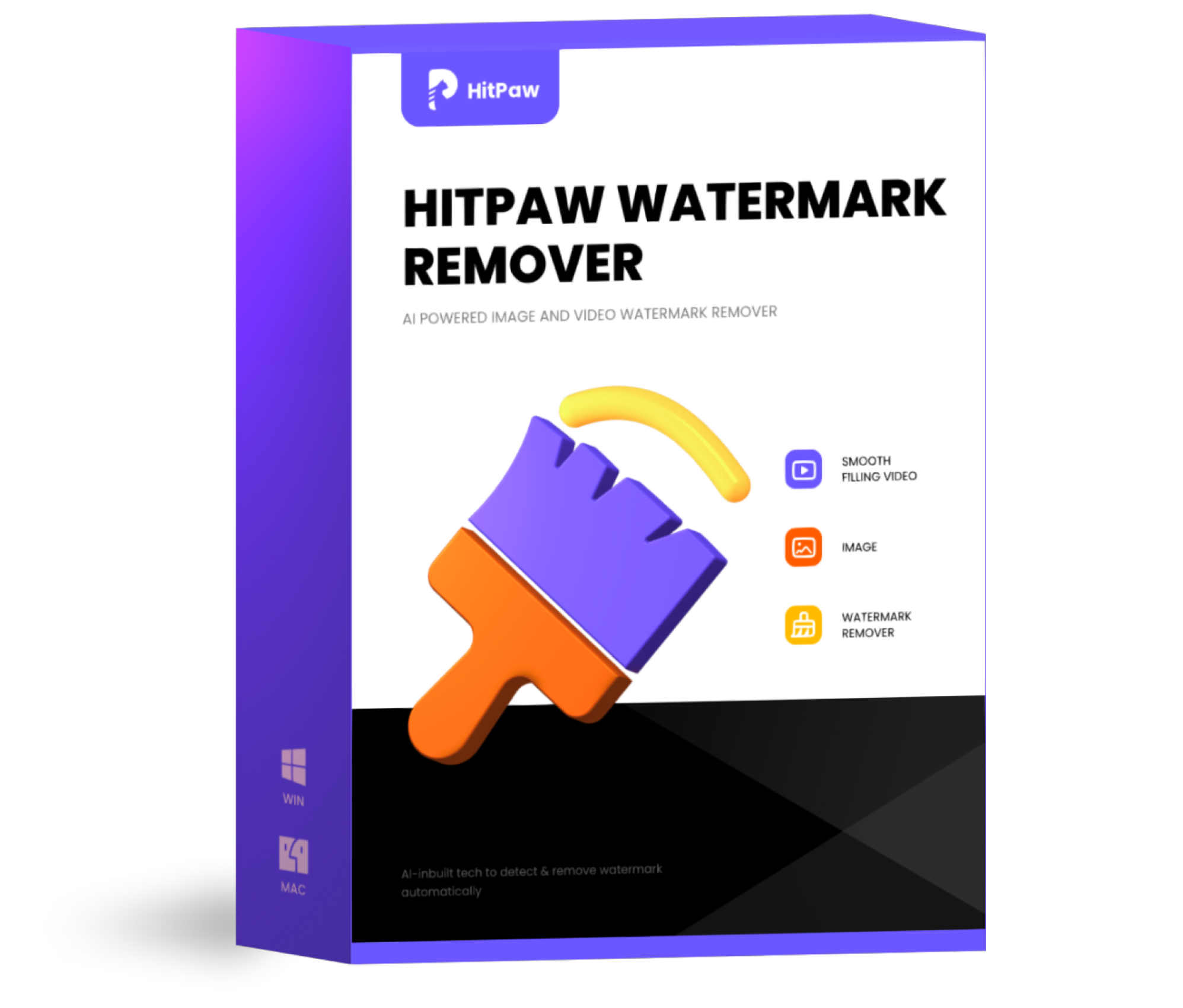 HitPaw Watermark Remover
HitPaw Watermark Remover  HitPaw VikPea (Video Enhancer)
HitPaw VikPea (Video Enhancer)



Share this article:
Select the product rating:
Daniel Walker
Editor-in-Chief
My passion lies in bridging the gap between cutting-edge technology and everyday creativity. With years of hands-on experience, I create content that not only informs but inspires our audience to embrace digital tools confidently.
View all ArticlesLeave a Comment
Create your review for HitPaw articles